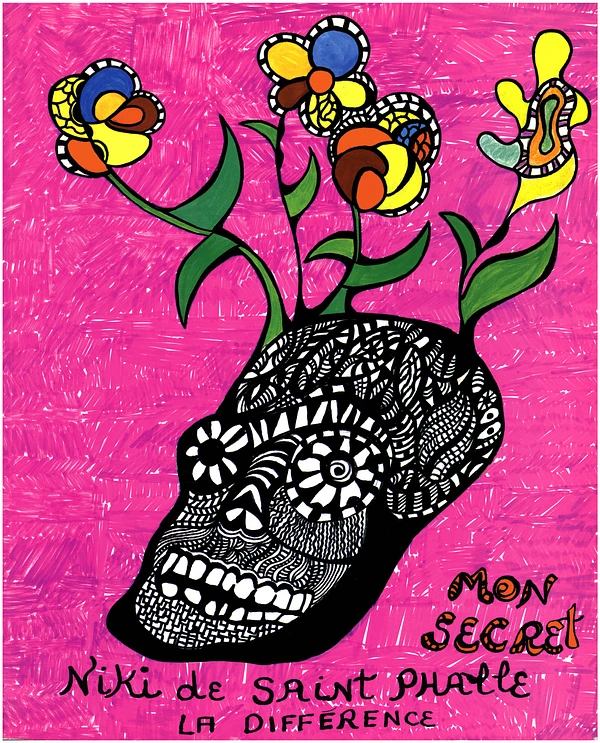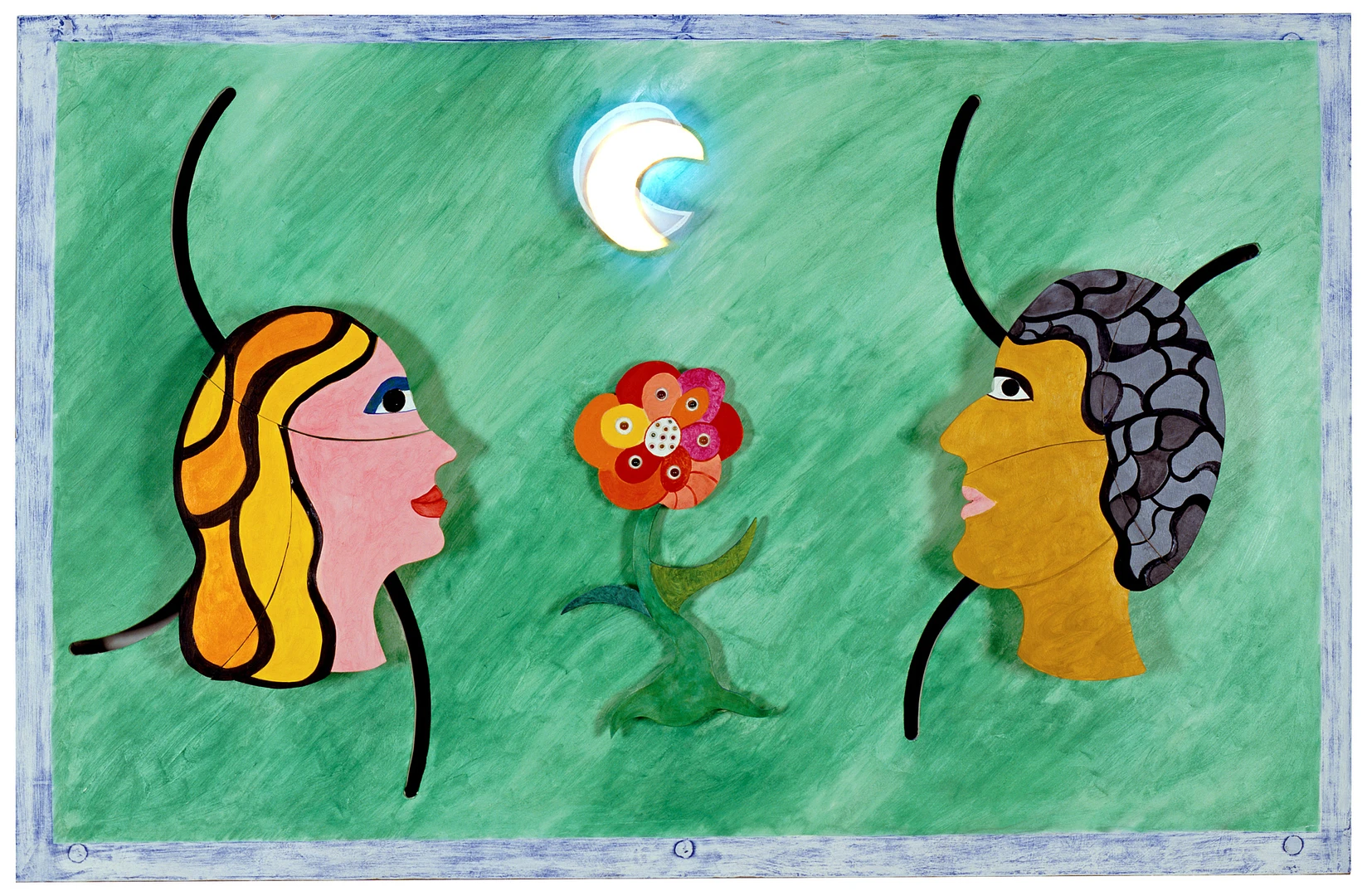
Niki de Saint Phalle, Couple from the series Exploding Paintings, 1993-2023 © Niki Charitable Art Foundation. All rights reserved // Photo: Laurent Condominas
Exhibition
The 1980s and 1990s: Art Unleashed

The exhibition invites you to explore the last two decades of the work of Niki de Saint Phalle (1930–2002), starting from 1978, when she launched the monumental Tarot Garden project in Italy.
While the artist came to fame in the 1960s and ‘70s for her Tirs (paintings made by shooting canvas with a rifle), her involvement in the Nouveau Réalisme movement, and her emblematic Nanas, she also produced a prolific body of late work. This is the period of her life that we want you to discover.
Female artists’ late work is often overlooked, but in Niki de Saint Phalle’s case, these years were distinguished by remarkable freedom, both in her words and in her artistic practice.
She also enjoyed financial freedom thanks to her daring entrepreneurial model, and wanted to make art accessible to everyone in an effort to transform everyday life into something exceptional.
Using joy as a strategy for resistance, the artist contributed to social justice by getting involved in various causes:
Her art embraces humanity as a whole, celebrating life and exploring death in a profound and universal dialogue. Witness this dialogue starting in June.
Over 150 works on display in nine sections
Born in 1930 in Neuilly-sur-Seine into an aristocratic family, Niki de Saint Phalle does not attend art school. After spending her early childhood in France, she grows up in New York. In 1952 she moves to Paris with her first husband, writer Harry Mathews. The couple, who would have two children, separate several years later.
She works first as a model, before branching out into acting. In 1953 she is hospitalized for depression and begins painting and making collages. Abandoning the theatre, she opts for art as a way of life and a means of survival. In 1956 she moves to Paris’s Impasse Ronsin, site of a number of artists’ studios. There she meets the sculptor Jean Tinguely, who in 1960 becomes her life partner.
In 1961 she joins the New Realist group as its only female member and begins developing a radically unconventional art practice. For two years she shoots at canvases with a rifle – a period of destruction, rage and resolve that enables her to reinvent painting. In 1966, with the exhibition of the monumental Hon (“her” in Swedish), the Nanas begin to emerge as the most famous feature of her work.
Worlds away from the odalisques seen in art museums, her growing “army” of Nanas, in a wide range of shapes and colours, represent an artistic and feminist statement, embraced and reaffirmed, with which all women can identify.
In 1967 Niki de Saint Phalle and Jean Tinguely travel to Montreal to present the exhibition Le Paradis fantastique at Expo 67, on the terrace of the French Pavilion.
Discover the full timeline of the artist’s life and work at the entrance to the exhibition room during your visit.


